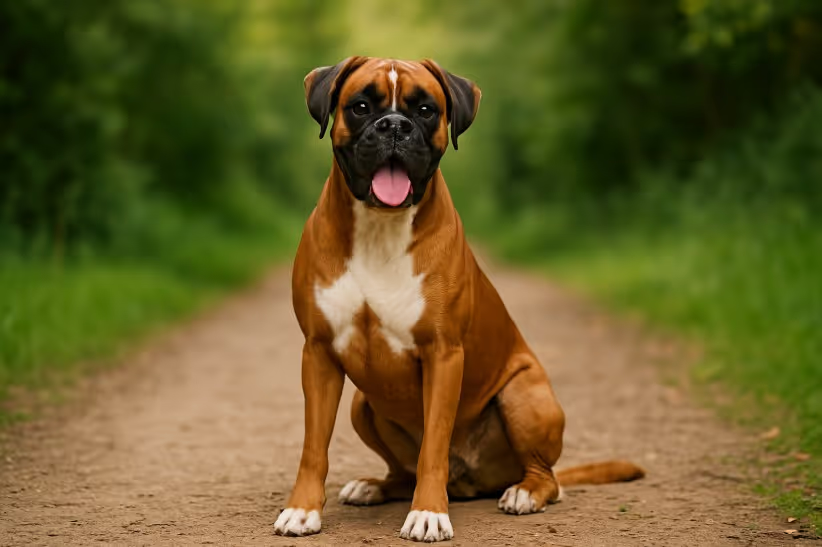The Boxer is a spirited, muscular, and intelligent breed that combines athleticism with affectionate loyalty. Known for their expressive faces and playful demeanor, Boxers are often described as the “Peter Pan” of the dog world due to their puppy-like energy that lasts well into adulthood. They’re ideal for active families who want a loyal, protective companion that thrives on interaction and exercise.

The Boxer descends from the German Bullenbeisser, a now-extinct hunting dog used for chasing wild boar. In the 19th century, breeders refined the Boxer into a more agile, family-oriented working dog. They gained popularity as military messengers, police dogs, and loyal family protectors. Recognized by the AKC in 1904, Boxers continue to be one of North America’s most beloved breeds for both their brains and brawn.
Low-maintenance in terms of coat care, but regular attention to hygiene is essential.
Recommendations:
Boxers are high-energy dogs who require significant daily activity.
Smart and eager to please, Boxers respond well to training but require consistency.
📝 Tip: Avoid long, repetitive sessions. Keep training fun and engaging.
A well-balanced, protein-rich diet is essential for supporting their muscular build and energy levels.
Boxers are prone to certain genetic conditions, so breeder selection is critical.
Common Health Issues:
Resources:
💡 Ask breeders for heart testing results and family history of cancer.
1. Are Boxers good family dogs?
Yes! Boxers are playful, patient, and protective — perfect for active families with children.
2. Do Boxers get along with other pets?
They can with proper socialization. Early introductions are key, especially with smaller animals.
3. Are Boxers aggressive?
Not inherently. They are protective and alert but typically friendly and goofy with proper training.
4. Do Boxers drool a lot?
Yes, especially after eating, drinking, or exercise. Keep a towel handy!
5. What health problems are common in Boxers?
Boxers are prone to certain cancers, heart conditions, and breathing difficulties due to their short muzzle.